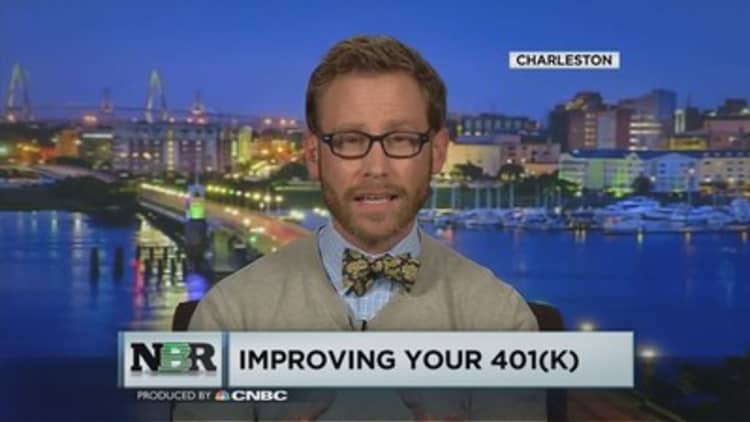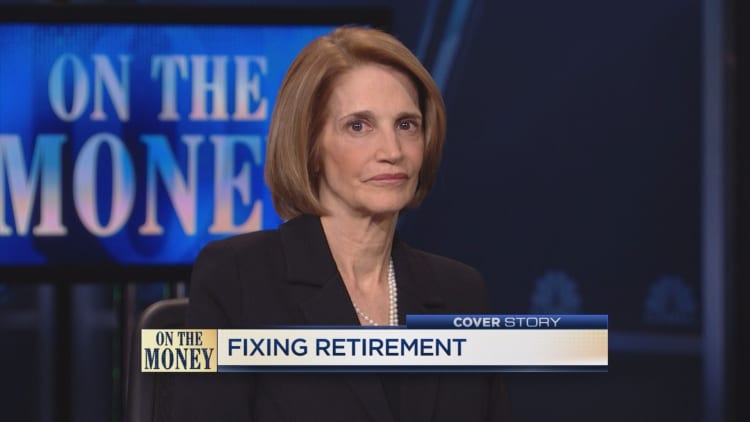If you are lucky enough to work for a paternalistic employer, it can be easier than ever to set yourself up with a retirement savings account. Many employers have taken to signing people up automatically for 401(k)s and similar workplace plans. Some even raise the amount you set aside each year unless you object.
When it comes time to leave that employer, however, too many people end up with drained
I first wrote about this issue 10 years ago, when Hewitt Associates, which administered employee benefit plans, reported that 45 percent of newly departing workers among its clients took cash distributions from their 401(k)s. A rival company, Vanguard, also had a high figure, 27 percent.
More from New York Times:
Roger Ailes: The man who mined a divided America
The 10 and a half months that shook Fox News
Uber threatens to fire star engineer in legal battle over driverless cars
A decade later, the company, now known as Aon Hewitt, comes in at 43 percent while Vanguard's latest number is 31 percent.
This lack of improvement is cause for some alarm, but not as much as it may appear at first glance. Some of the people cashing out are retiring. Others have very small balances, which means that nowhere near 30 or 40 percent of the retirement savings assets are falling out of the plans
Still, we can all learn something from observing three big categories of

First, consider (and sympathize with) those short of cash. Some people leave an employer because of a layoff or termination, and it may take a while to get another job. Others may have to leave to care for a sick relative. And even someone moving on to a better gig with a higher salary may see a retirement balance as an opportunity to wipe out credit-card debt.
It's possible that automatic enrollment in 401(k) plans, while it helps begin the savings process, does not help with retention of retirement assets.
Rob Austin, director of retirement research at Aon Hewitt, observed that some lower-paid retail workers, say, may not even know they have an account and then discover that they have a few thousand dollars when they change jobs.
"So now here's a savings account that is available for distributions, and like most Americans, they may be struggling with their finances," he said. Cashing out may just be a way to try to make ends meet.
When it comes time to leave that employer, however, too many people end up with drained accounts, while paying penalties and taxes and leaving themselves with reduced retirement savings or none at all.
Our second big group consists of people whose former employers automatically roll over their small-balance 401(k) plans into individual retirement accounts. Employers can do this with any account with $5,000 or less that came from employee savings while the person worked there. They can do this even if the total balance is actually higher than $5,000, as long as the amount over $5,000 is there because an employee rolled that money over into the 401(k) from a previous employer's plan.
Why do employers kick people out of their plans in this way? It costs money to keep each account up and running, and it takes
Here is what we've learned, however,
While these forced-transfer IRAs (16 million of them between 2004 and 2013, with $8.5 billion at stake) are an improvement over cashing out small balances altogether, which many companies once did, the fees in the IRAs can eat up a small balance over time. In fact, 13 of the 19 accounts the G.A.O. examined took the sample $1,000 balance down to zero within 30 years.

How can that be? Regulations dictate that the default investment for the money in these accounts be something safe, often a money-market account. If the money doesn't grow much, given the historically low earnings on those kinds of accounts, and the account owner does not know to make any changes, fees can outrun the earnings over time. So much for safety.
So if you're leaving a job and you get a letter from your 401(k) administrator telling you that your money will end up in one of these IRAs if you don't act — well, act. Find an IRA provider with rock-bottom fees and pile all the money from former employers into just one account, so that you can track all your savings more easily and buy any cheap index or exchange-traded fund you want. You do this
Now, about our third group of people who cash out their funds. They're the ones who spend the money to go on vacation between the old job and the new one, or on something else that's fun. We might assume that they are younger and foolish.
My knee-jerk temptation is to shove the compound interest chart that changed my life under their noses so that they know that starting retirement savings at 22 instead of 32 can make a difference in balances upon retirement that reaches well into six figures over several decades in the
@RonLieber: This chart changed my life.
Jean A. Young, a senior research analyst in the Vanguard Center for Investor Research, didn't think much of that instinct. "We try to talk to people about compound interest and their eyes glaze over," she said.
(She also doesn't worry as much as I do about the younger set, noting that the company's account holders in their 20s actually top the rankings when the percentage of each demographic group that preserves assets at various account balance levels is examined.)
Shlomo Benartzi, a behavioral economist at the University of California, Los Angeles, and the author of "Save More Tomorrow," told me this week that it was much better to focus on the short-term hit: Income taxes and a possible 10 percent penalty on top of that for busting into a 401(k).
T. Rowe Price has taken to issuing both kinds of warnings. It once wrote a letter to departing employees spelling out the tax and the numbers on forgone returns. Now, it presents a calculator loaded with personalized figures, including balance, tax
I don't want to be that guy who tells you never to take the vacation or to skip the avocado toast each day. But you should know what the numbers actually are before you grab all or even some of that 401(k) money. In many scenarios, that after-tax amount from the 401(k) will grow to many times that figure over the decades if you simply leave it in a solid investment.
Watch: How to get more people to save for retirement



